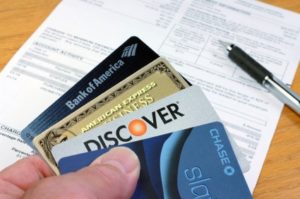Identity theft can be a devastating and demoralizing problem that has far-reaching consequences that are difficult to repair. Unfortunately, identity theft cases continue to increase. If you have been a victim of identity theft, believe you have been a victim or want to increase the security of your credit history, then you can place a security freeze on your credit file with something called a credit freeze.
Why Freeze Your Credit?

A credit freeze is a process for denying access to your credit reports. This is an effective method of preventing identity theft by blocking identity thieves from opening new lines of credit. Once you institute the credit freeze, no one — not even you — can open a new line of credit without jumping through hoops.
In fact, lenders and insurers can’t even access your credit history without your explicit permission, which involves sending them a personal identification number that is good for a limited time. Otherwise, no one can access your credit profile until you lift the credit freeze.
While a credit freeze has pros and cons, the main benefit is locking down your credit profile to prevent unauthorized use. The downside, however, is that you need to go through a series of steps if you want to open a new line of credit, apply for a loan or even just want to check your credit report.
How to Request a Security Freeze on Your Credit Report
Freezing your credit is actually a simple process. All you need to do is contact the credit bureaus (Equifax, Experian, TransUnion) and request that they freeze your credit report. You will need to include your identifying information, including a copy of your photo ID, your SSN and your address. There may or may not be an associated fee, depending on why you are requesting the credit freeze.
If you have been a recent victim of identity theft or if you have been exposed to a security breach, you should be able to place a security freeze at no charge. Otherwise, there may be a $10 administration fee. After the credit bureau approves your credit freeze, you will receive a PIN that will allow you temporary access to unfreeze your report if you need to apply for a loan.
When You Should Freeze Your Credit File
The following are a few examples of when it may be a good idea to freeze your credit:
- You have been, or suspect you have been, a victim of identity theft.
- You lost your wallet or purse.
- You have been a victim of fraud (stolen checks, forged signatures).
- Your information was stolen in a security breach (for example, your Social Security number, personal identification, credit card information or other information was lost or stolen from a third-party computer system).
- You want an added layer of security between your finances and the rest of the world.
Unfreezing Your Credit
Once you are ready to lift the security freeze on your credit profile, all you need to do is contact the credit bureaus with the PIN they provided you. Keep in mind that it may take up to a few days, so you probably won’t be able to apply for a store credit card at the last minute (and that is a good thing, as store credit cards are rarely a good deal).
You may or may not have to pay to lift the credit freeze from your credit profile. If you were not charged to place the initial credit freeze because of an identity-theft experience or related security breach, then you probably won’t have to pay to remove the freeze. If you are doing this purely as an added layer of security, you may have to pay a small fee.
What to Look Out for With a Credit Freeze
Keep in mind that a credit freeze won’t repair or fix your credit score, and it won’t do anything to prevent further use of any lines of credit that have already been created. All a credit freeze does is prevent access to your credit report, which stops new lines of credit from being opened. If you have been a victim of identity theft, then you should immediately report it to the police and your credit issuers and immediately close the affected lines of credit to prevent further damage.
Bottom line: A credit freeze is an easy way to secure your credit profile against identity thieves. It is either free or low-cost and is highly effective against allowing new lines of credit from being opened. The only downside is that it can be a hassle to unfreeze your credit report if you need access, but that is a small price to pay for added security and peace of mind.



Comments:
About the comments on this site:
These responses are not provided or commissioned by the bank advertiser. Responses have not been reviewed, approved or otherwise endorsed by the bank advertiser. It is not the bank advertiser’s responsibility to ensure all posts and/or questions are answered.
Brent Pittman says
Have you thawed out your reports yet? What was the process?
Ryan Guina says
Brent, the process is easy – just contact the credit bureau with your PIN number and ask them to either temporarily or permanently unfreeze your credit file. Keep in mind it’s not always instantaneous, so it is a good idea to plan in advance if you need to unfreeze your credit report.